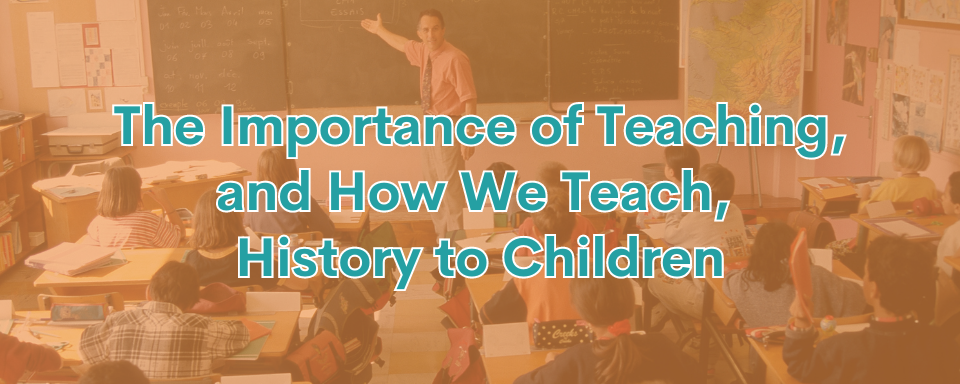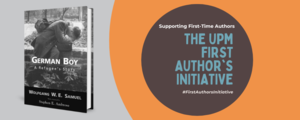
The Importance of Teaching, and How We Teach, History to Children
By Amy Lemco
More than ever, children are struggling to see the relevance between their studies and their lives. Research shows they lose engagement with the material, increasingly, each year they progress toward graduation.[1] With less time in the classroom given to social studies than reading or math, the dissonance is surely greater. For someone who grew up to love history to the point that it forms a large part of my vocation, the irony is not lost on me that I was once among them, so far as my history class was concerned.
Less than 200 years ago, Alonzo Potter and George B. Emerson, in writing The School and the Schoolmaster, observed of the textbook model, "the pupil […]tasks his memory much, his judgement little.” Rote memorization for the purpose of examination was the dominant education model of the period.
A romanticized history may be populated by teachers and administrators who saw education–rote or otherwise–as the means of bringing humanity to its fullest potential. Unfortunately, sources demonstrate time and again that education was more often designed to lift people only so far within a classed system. For those consigned to labor (and/or stay home)–ie. the rural populace, ethnic minorities, women–education was meant to fit them to a designated sphere. To this end, memorization was a perfect modality: it facilitated examinations, while keeping critical thinking within strict bounds.
Let us not lament but simply observe: such a model hobbled society from producing all the genius of which it was capable, resulting in a more troubled social landscape than necessary. Children are wiser than they are credited for. How many of them will be multiplying matrices, labeling golgi apparatus, or applying the date George Washington crossed the Delaware to any facet of their lives, when they are thirty? As to pure content–better that they learn interpersonal communication, economics, law and how to deconstruct advertising. Modern educational models are embracing what will, hopefully, become a universal ideology: that, to bridge the dissonance between the studies and lives of every student, all modes of instruction should be in pursuit of reason.[2]
So, if content matters less than the habits of cognition, we may ask what content is best suited to the exercise. Why should we teach history? How to teach it, if at all? (Spoiler alert: yes, we should.)
We are drawn to history; psychologically, history helps define who we are within a community, in relation to others. I would argue that is its main purpose in curriculums. Like all tools, it can be put to nefarious purposes. In 1925, for example, Professor Michael Vincent O’Shea wrote that, for Black students, no history was necessary other than that which would “explain the status” of Black Americans, under the oppressive Jim Crow culture. It was easy to manipulate content to that end because, a century after The School and the Schoolmaster, most students were still meant to remember what was told to them, rather than to reason.
Ironically, although we partially (often unconsciously) define ourselves through history, our wondrous brains simultaneously compartmentalize: past tense, done, dead. What a useful cognitive skill, which wounds us with its falsity. History flows, carrying all the detritus, from centuries ago to the now–to be unconscious of this makes the past much more dangerous and boring than it should be. Add to this, that the school bell rings and, largely, we leave the thinking-habits of one classroom behind as we go to the next. [3] Had I known how literary analysis or the scientific method could be applied to history, I would have fallen in love with it sooner. Literary analysis teaches me to ask, who is the narrator of this story? What are their motives, desires and fears in telling it? Where are the gaps–the story that is still to be told? The scientific method observes how the existence of one person or event affected the whole. It asks, if a different circumstance was applied to a similar cohort, was the outcome more effective, ineffective, positive or negative–and by which markers do we measure such terms? It posits a theory.
The gatekeeping of these critical lenses may be the reason for the dissonance between the well-worn phrases, “Those who cannot remember the past are condemned to repeat it,” and, yet, “History repeats itself;” A neglect of memorization was never the problem. It is not enough to teach a few (fewer by the year) history majors, who can afford a collegiate tuition, to approach the wellspring of the past with a nuanced, participatory lens. After all, a mind that questions the relevance of its subjects is already demonstrating critical-thinking. The young need only guidance and nourishment in that direction.
Due to evolution in the arts, modern young audiences not only accept, they even enjoy complicated heroes and villains, more than the two-dimensional “goodies” and “baddies” that populated entertainment and education of the past. With technology as their birthright, they are equipped as no one who came before to define who we are as a global community–an absolute necessity, at this point in the historical narrative. (And, as any literary aficionado could tell you, for the universal, seek first the particular; thus, regional history is a golden opportunity for young students to tap into resources, investigate and educate their own community.) The silver-lining of all the obscured and underserved histories, heretofore, is that historians left so many treasures for their heirs to unearth.
Why wouldn’t we teach children to be the foremost authorities of what lays the groundwork for the future? History was really for them, all along.
[1] https://www.the74million.org/article/only-half-of-students-think-what-theyre-learning-in-school-is-relevant-to-the-real-world-survey-says/


Comments